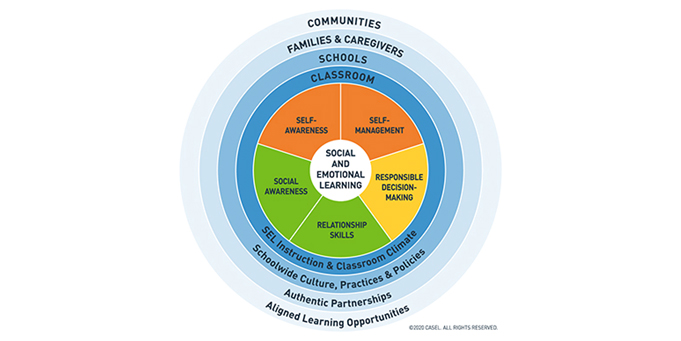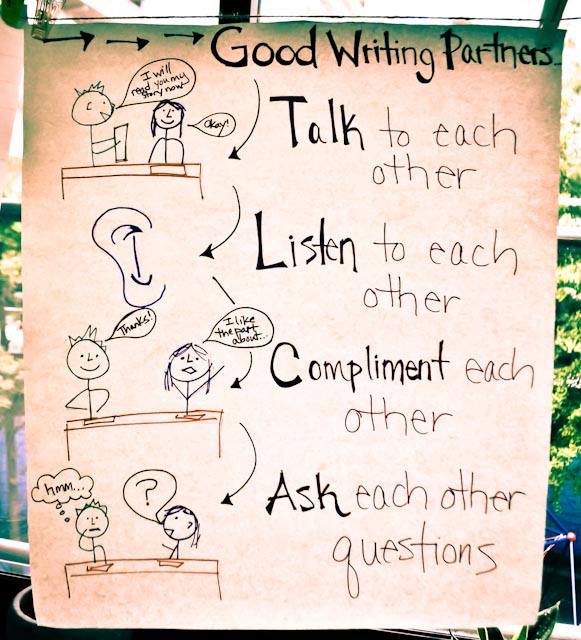The pandemic had a tremendous impact on the mental health of the student community. While fear, fatigue, and anxiety have been major contributors, the sudden displacement of social-emotional relationships and learning has also added to myriad mental health issues triggered since the onset of the pandemic.
Here’s what we’ll be looking into today
- What is social-emotional learning
- How does it work in a classroom
- What are its benefits
- How we can include SEL in a world dependent on online classes
Social and Emotional Learning (SEL) is central to our understanding of human identities and development. It can be defined as an “integral part of education and human development. SEL is the process through which all young people and adults acquire and apply the knowledge, skills, and attitudes to develop healthy identities, manage emotions and achieve personal and collective goals, feel and show empathy for others, establish and maintain supportive relationships, and make responsible and caring decisions.” The following chart will show you the primary components of any SEL enterprise.

In a world without COVID, these processes take place in a classroom. They include skills that allow learners to become more self-aware, understand their strengths and weaknesses, recognise emotions and be empathetic to them, become socially aware, and build meaningful relationships. These are skills are overtly taught in the early stages and become more natural and innate with older learners. It is, however, a constant learning process that occurs with regular interactions and personalised communication with groups of peers.
At its early stages, a teacher models social and emotional skills and provides opportunities for the students to apply, practice and hone these skills. For instance, as the class works on a composition exercise, the teacher can also teach respectful communication.
SEL skills are embedded into curricular and co-curricular activities as learners form study groups and submit team projects. SEL happens in adult learners with positive teacher-student interactions, more space for student engagement, autonomy and exhibition of mastery.
There are studies that show that SEL processes promote positive social behaviours and improve academic achievements in the classroom. According to a research conducted in Loyola University, Chicago, CASEL, and the University of Illinois, Chicago, “those who participated in evidence-based SEL programs showed an 11 percentile-point gain in academic achievement compared to students who did not participate in SEL programs”.
SEL has both long and short term benefits.
-
- It builds self-awareness and helps us manage ourselves better.
- It provides us with the vocabulary to describe our mental state and share our feelings in a constructive manner.
- It makes us open to alternate perspectives, making us more empathetic.
- It makes us more decisive.
- It helps builds morale and a positive image of ourselves.
- It encourages positive social behaviours and helps build better, more honest relationships.
- There is a direct correlation between SEL, test scores, and attendance.
The imposition of the lockdown has taken this away from most learners. Attending classes remotely takes away the social and emotional components of learning. As schools and colleges rushed to provide their curriculum online, SEL got lost in translation. Since most educational institutions are depending on online forums for the upcoming academic year or are choosing blended models, here is a list of things you can do to keep up with your social-emotional skills.
Drawing from the ideas of Kristina Scully, a special education teacher, and an SEL expert, there are simple ideas you can incorporate to improve your emotional wellbeing in the upcoming academic cycle.
A simple greeting like ‘how are you?’ needs to find its space in our everyday communication as an actual question where people respect and actively listen to the answers. As the world reels from the impact of the pandemic, it is on us to work towards our psychological wellbeing and to support others to the best of our abilities. We will take a while to get acclimated to the ‘new-normal’ and until then, let us keep our social-emotional skills sharp and be present for both ourselves and those in need.









![Best Universities in New Zealand for International Students [2025 Rankings]](https://tcglobal.com/wp-content/uploads/2025/09/Best-Universities-in-New-Zealand-for-International-Students-2025-Rankings-600x338.png)